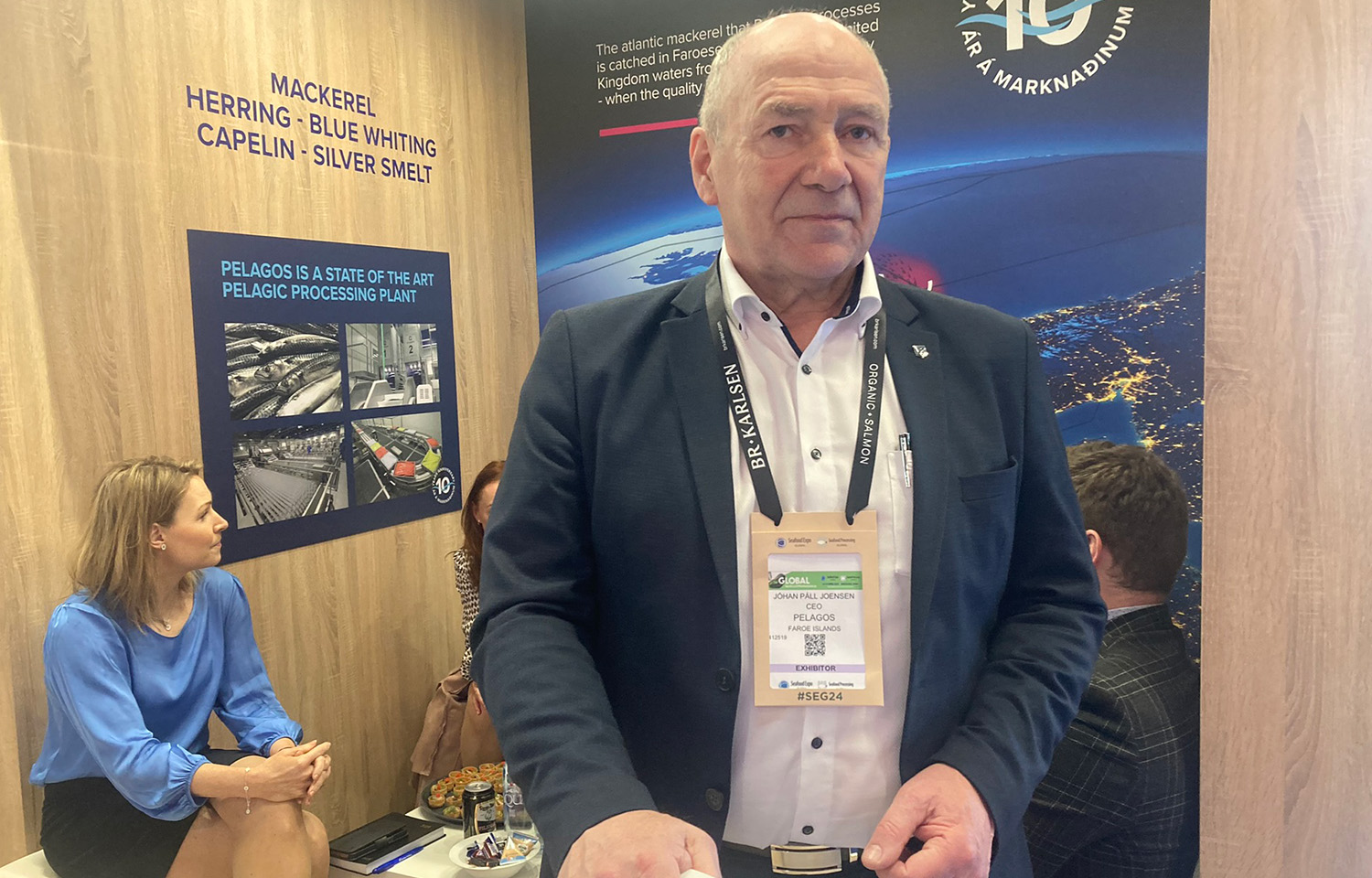Pelagos is the Faroe Islands’ largest pelagic species processor, concentrating on mackerel, herring, capelin, blue whiting, and silver smelt.
Founded in 2014 by several of the country’s largest pelagic players as a means of producing more food-grade pelagic products for export, Pelagos has had a great first decade in business, according to CEO Jóhan Páll Joensen.
“Big quotas, high prices, big demand – everything has been fantastic,” he told SeafoodSource.
Pelagos is based in Fuglafjørður, considered the pelagic capital of the Faroe Islands – a country advantageously located between Scotland and Iceland, giving it unique access to pelagic species migrating across the North Atlantic Ocean. Its facility has state-of-the-art technology, meaning most of its processes are automated, and it has the capacity to process more than 45,000 metric tons of fish within the tight, four-month domestic fishing season.
Much of Pelagos’ inputs originate from the fleets of its owners, including Framherji and Palli hjá Mariannu. Also holding a minority share in Pelagos is Havsbrún, one of the main fishmeal and salmon feed producers in the North Atlantic, which operates the Faroe Islands’ largest processing facility. Faroese investment company Enni, which is operated by service providers to the seafood industry, is the fourth and final member of the company’s ownership group.
In December 2023, Pelagos acquired Faroe Pelagic and its processing facility in Kollafjørður from previous owner Parlevliet & van der Plas, increasing its production capacity.
Pelagos has thrived by segmenting its markets, with high-end product going to Western Europe and Asia and lower-quality fish sold to Eastern Europe and West Africa – Nigeria in particular. However, Russia’s invasion of Ukraine disrupted its trading, and potential sanctions on Russia could do further damage to its business, according to Joensen.
“Russia was a big part of our business, but last year, sales to Russia were down,” he said. “We always felt it is better not to be too dependent on one market, so we have tried to split it, but we are still selling a lot to Russia. We have good cooperation with some companies there. The Faroe Islands is supporting all the sanctions against Russia, but seafood isn't a part of these sanctions, so we will see what happens. But right now it is totally legal.”
The government of the Faroe Islands, which is a self-governing nation under the external sovereignty of Denmark, has performed a delicate dance in its dealings with Russia, issuing sanctions in May 2022 while exempting the seafood industry and conducting successful fishing catch negotiations. Joensen said he has mixed feelings about any potential move by the Faroese government to restrict seafood trading with Russia. But he said unequivocally that it would be bad for business.
“We wouldn’t do it on our own, as I don't think that we as a single company can take ourselves out of the market when other companies are continuing to operate there. And so it's a problem. It's a challenge for us,” he said.
While Russia remains a sticky issue, Pelagos’s top threat is coming from nations with which the Faroe Islands maintains otherwise friendly relations – Norway and the United Kingdom …








